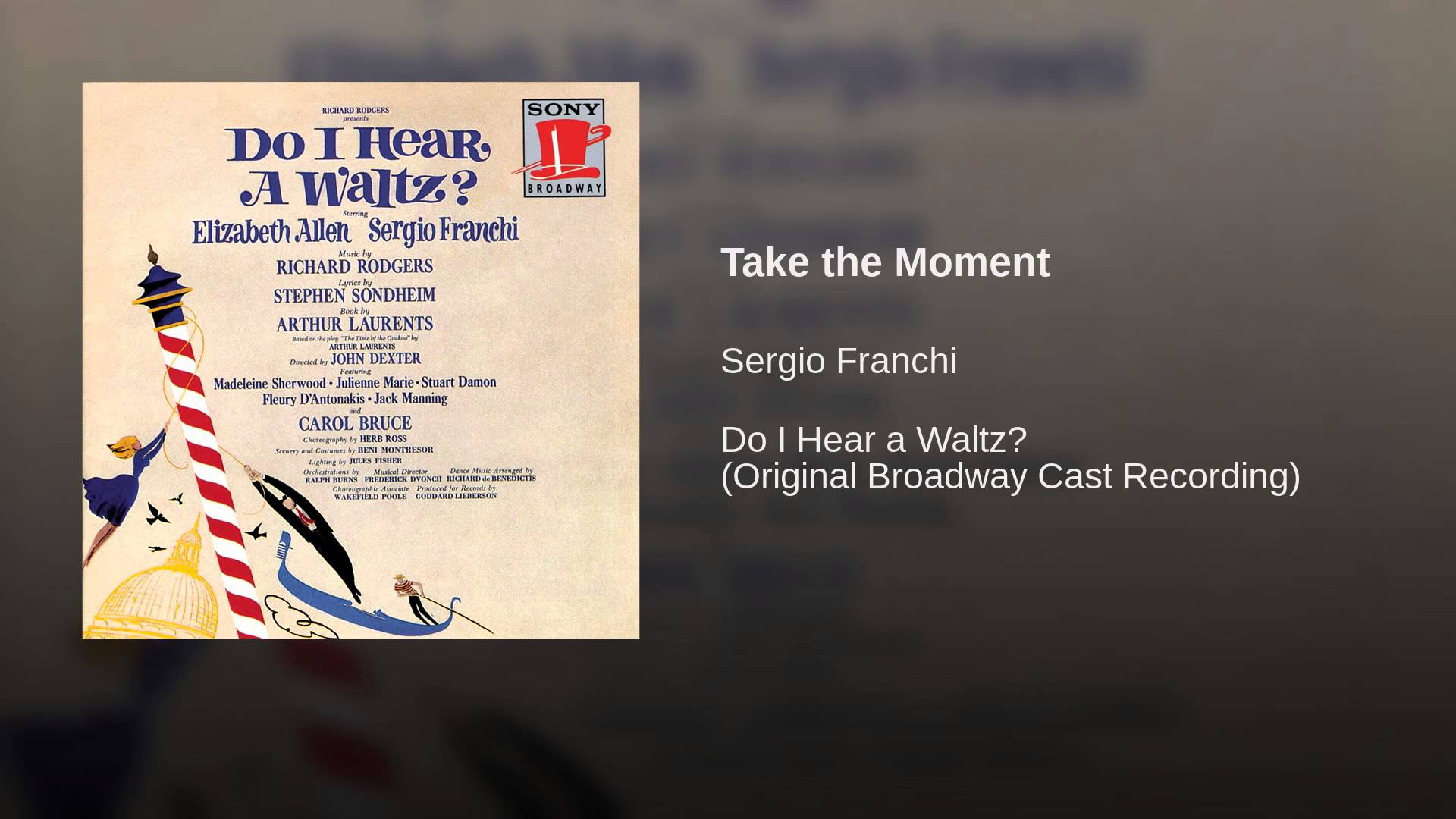Many great songs are American standards; some fly under the radar of popular culture. And then there are a few great songs that haven’t even been properly introduced to the radar.
In 1965, you would be hard-pressed to find two songwriters who better represented the relay race of Broadway show tunes than Richard Rodgers and Stephen Sondheim. Rodgers had been active as a composer for almost half-a-century; he had achieved unprecedented success with the lyricists Lorenz Hart and Oscar Hammerstein II respectively. Rodgers had tried his hand at lyric writing himself in the wake of Hammerstein’s passing; among his efforts at both was “Something Good” for the film of The Sound of Music—not bad at all. Sondheim was Hammerstein’s protégé, and by 1965 had already made a significant mark on Broadway with two hits as a lyricist, plus one hit and one miss as a composer/lyricist. His career would extend more than a half-a-century forward and, thankfully, he’s still working.
Before Rodgers would pass the baton on to Sondheim, they were briefly teammates on the same project: the musicalization of Arthur Laurents’s 1952 play, The Time of the Cuckoo, which became Do I Hear a Waltz?, which ran 220 performances during the 1964-65 season on Broadway. In the five decades since its appearance, show tune fans (including Sondheim himself) have tended to ac-cent-u-ate the negative about this musical, but I can’t join their camp. However dreadful the actual experience of creating Do I Hear a Waltz? may have been (and I gather it was pretty dreadful), the final product has much to commend it—at least purely as songwriting—and, occasionally, provides moments of transcendent passion and joy.
 “Take the Moment” shows up as the Act One closer—always a good time to sing the best song in the score. The show takes place in contemporary Venice, where a slightly embittered, slightly frosty, unmarried American secretary named Leona Samish comes to find distraction, adventure, and maybe—maybe—romance. Her tentative steps in that direction find her on the doorstep of a middle-aged shopkeeper named Renato di Rossi. He has his own baggage, but being an Italian tenor in a musical, he also has a knack for the romantic; he advises Leona to ignore the “static” of her bourgeois American bandwidth and leap into the unknown.
“Take the Moment” shows up as the Act One closer—always a good time to sing the best song in the score. The show takes place in contemporary Venice, where a slightly embittered, slightly frosty, unmarried American secretary named Leona Samish comes to find distraction, adventure, and maybe—maybe—romance. Her tentative steps in that direction find her on the doorstep of a middle-aged shopkeeper named Renato di Rossi. He has his own baggage, but being an Italian tenor in a musical, he also has a knack for the romantic; he advises Leona to ignore the “static” of her bourgeois American bandwidth and leap into the unknown.
The song was originally performed by Sergio Franchi, an Italian tenor, who made his American debut in 1962, and was a favorite guest of Ed Sullivan’s, where audiences ate him up like tiramisu. (He would wind up appearing on the Sullivan show 24 times and once sang “If I Were a Rich Man” in Italian.) Franchi may have been too dashing and too sleek to play a wearied antiques dealer with several children and (spoiler alert!) a wife, but in the recording studio (and in the few clips I’ve seen of him performing in this show) he was a dreamboat come true. Thrill to his robust, masculine, plaintive voice, especially in the last few bars: wouldn’t you take the plunge?
The song itself never got the airplay or critical acceptance it deserved. It was covered—at all the wrong tempos—by Tony Bennett, Sammy Davis, Jr., and Lena Horne, but never made the transition into a pop classic. I was lucky enough to stage a NYFOS concert some years with Steven Blier, who artfully and cleverly assembled a program that alternated between Rodgers and Vernon Duke. The estimable Joseph Kaiser knocked “Take the Moment” out of the ballpark, but you might strain a metaphor to say that the song would have imbued any baseball with jet propellant.
With Hammerstein, Rodgers created one of the great romantic ballads of the twentieth century, “Some Enchanted Evening.” For my money, he created one nearly as good—maybe even better—with Sondheim. Am I hyperbolic in my enthusiasm? Perhaps. But take the moment and listen—I can’t really explain it: wise men never try.
[I’ve devoted an entire broadcast of my radio show, Broadway to Main Street, to Rodgers’ songs in the last third of his career. You can listen to an iTunes podcast here.]
“Take the Moment” (1965)
Richard Rodgers, music
Stephen Sondheim, words



0 Comments